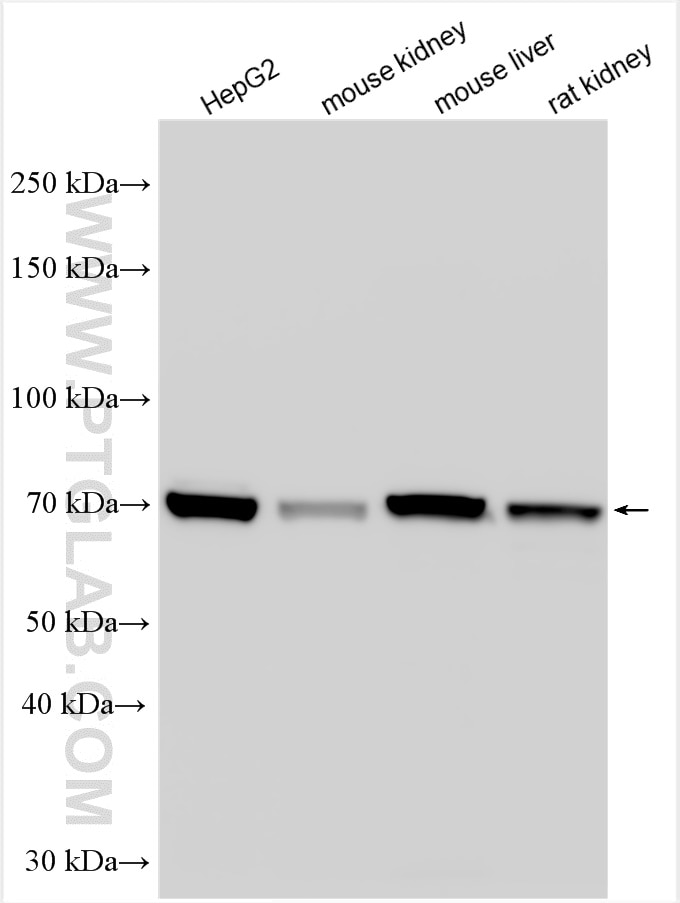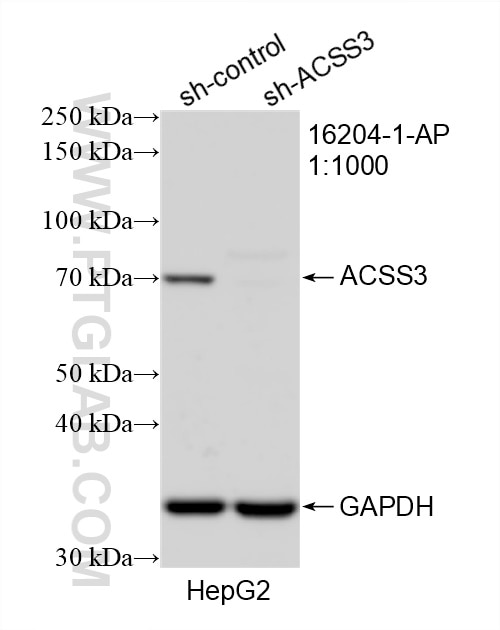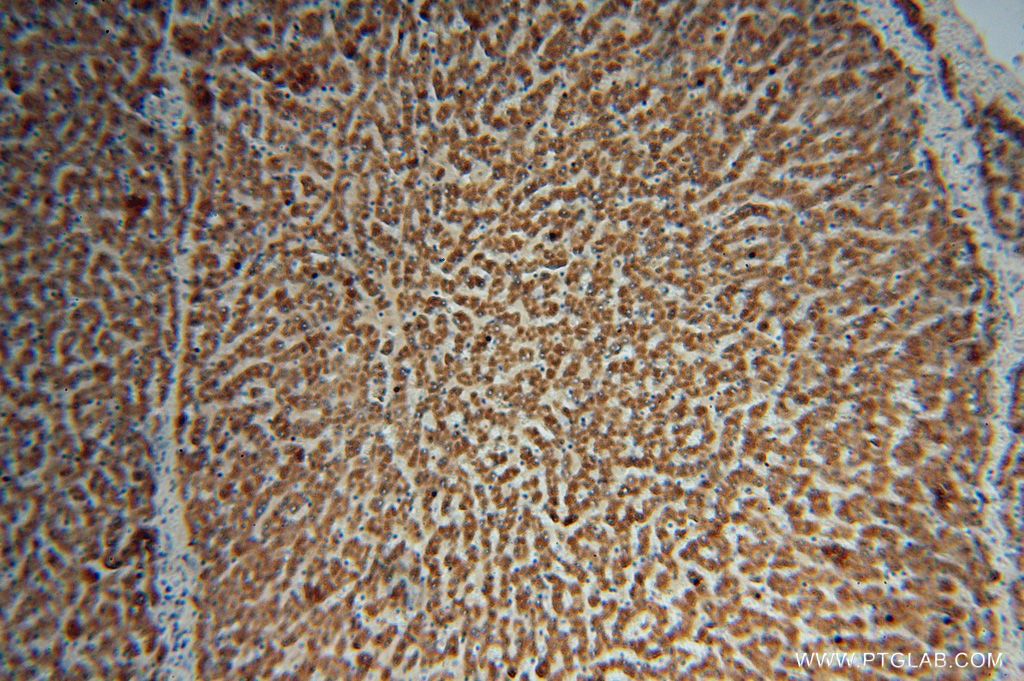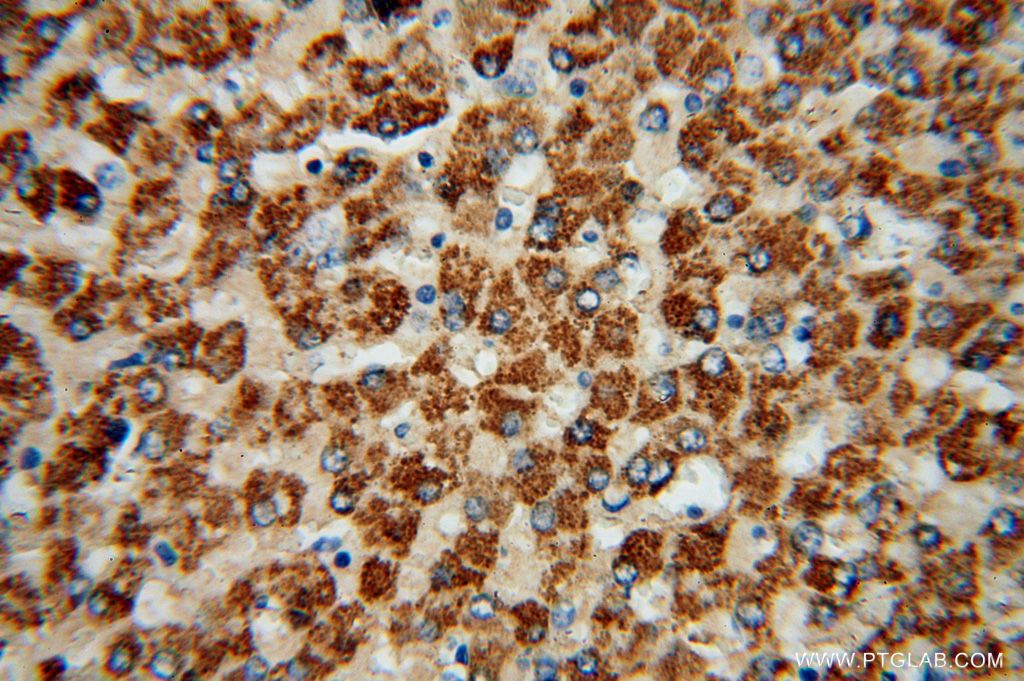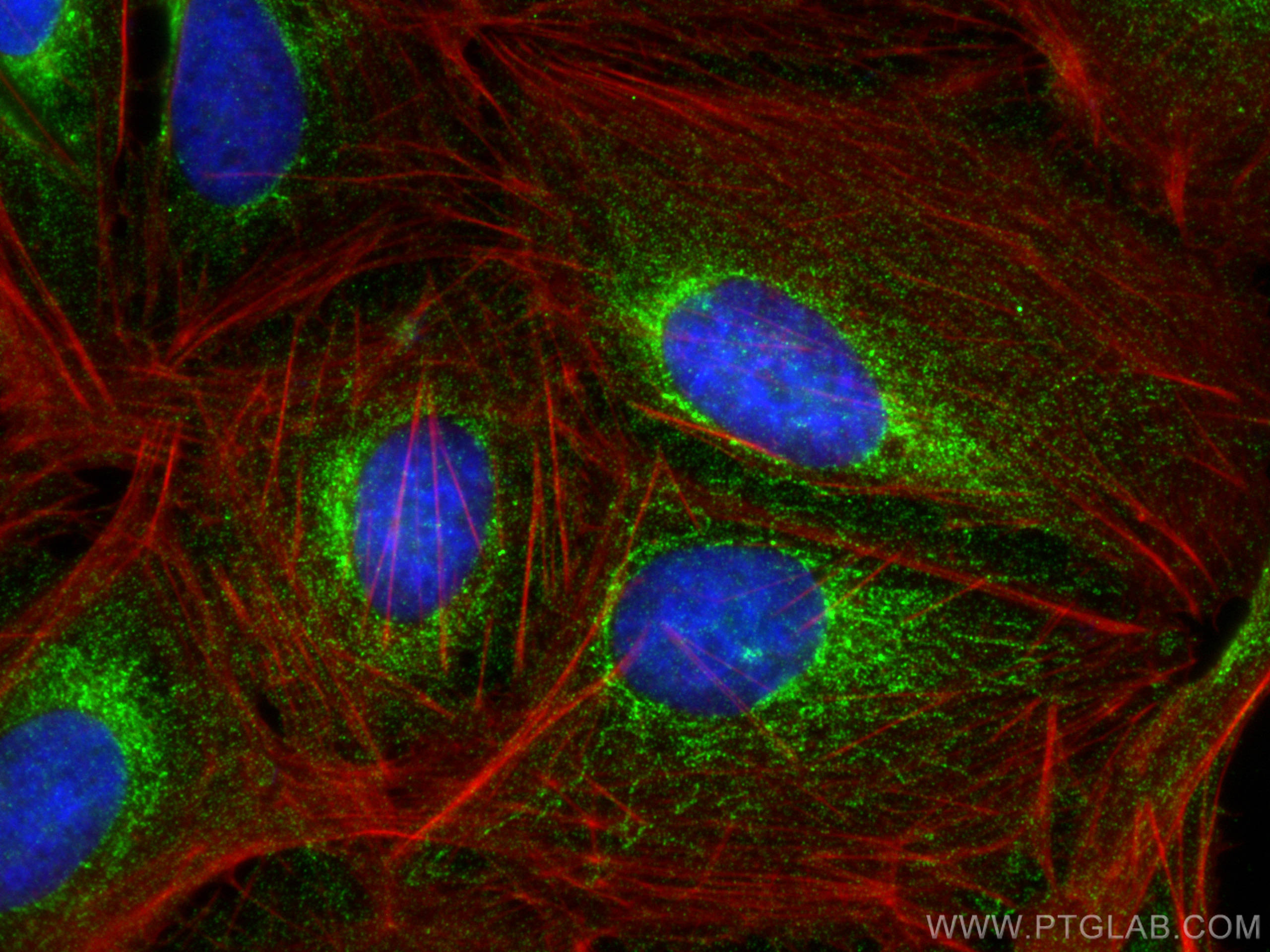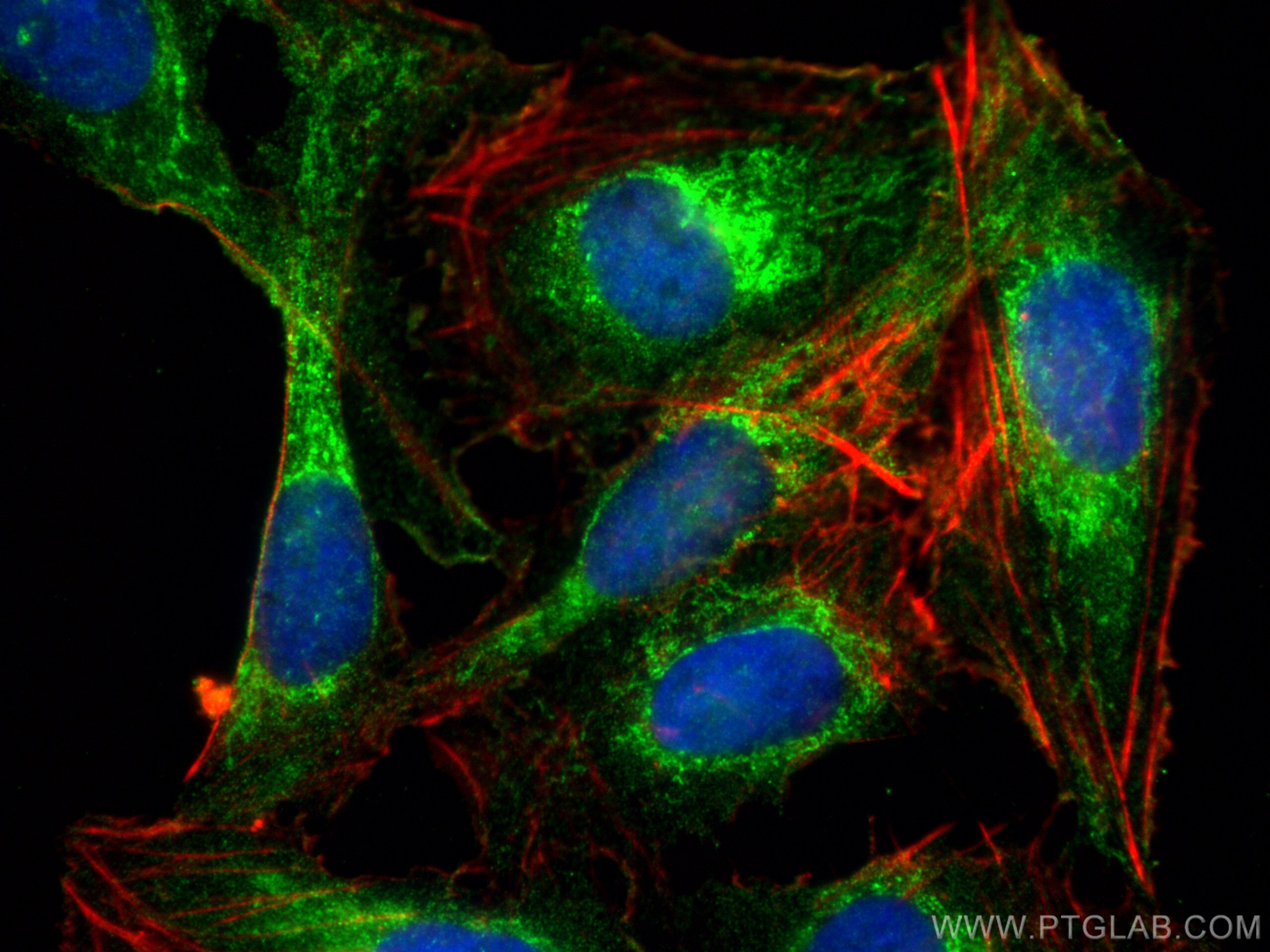- Featured Product
- KD/KO Validated
ACSS3 Polyklonaler Antikörper
ACSS3 Polyklonal Antikörper für IF, IHC, WB, ELISA
Wirt / Isotyp
Kaninchen / IgG
Getestete Reaktivität
human, Maus, Ratte
Anwendung
WB, IHC, IF, ELISA
Konjugation
Unkonjugiert
Kat-Nr. : 16204-1-AP
Synonyme
Galerie der Validierungsdaten
Geprüfte Anwendungen
| Erfolgreiche Detektion in WB | HepG2-Zellen, Mausnierengewebe, Rattennierengewebe |
| Erfolgreiche Detektion in IHC | humanes Lebergewebe Hinweis: Antigendemaskierung mit TE-Puffer pH 9,0 empfohlen. (*) Wahlweise kann die Antigendemaskierung auch mit Citratpuffer pH 6,0 erfolgen. |
| Erfolgreiche Detektion in IF | U2OS-Zellen |
Empfohlene Verdünnung
| Anwendung | Verdünnung |
|---|---|
| Western Blot (WB) | WB : 1:1000-1:5000 |
| Immunhistochemie (IHC) | IHC : 1:20-1:200 |
| Immunfluoreszenz (IF) | IF : 1:200-1:800 |
| It is recommended that this reagent should be titrated in each testing system to obtain optimal results. | |
| Sample-dependent, check data in validation data gallery | |
Veröffentlichte Anwendungen
| WB | See 5 publications below |
| IHC | See 2 publications below |
Produktinformation
16204-1-AP bindet in WB, IHC, IF, ELISA ACSS3 und zeigt Reaktivität mit human, Maus, Ratten
| Getestete Reaktivität | human, Maus, Ratte |
| In Publikationen genannte Reaktivität | human, Maus |
| Wirt / Isotyp | Kaninchen / IgG |
| Klonalität | Polyklonal |
| Typ | Antikörper |
| Immunogen | ACSS3 fusion protein Ag9173 |
| Vollständiger Name | acyl-CoA synthetase short-chain family member 3 |
| Berechnetes Molekulargewicht | 686 aa, 75 kDa |
| Beobachtetes Molekulargewicht | 70-75 kDa |
| GenBank-Zugangsnummer | BC009317 |
| Gene symbol | ACSS3 |
| Gene ID (NCBI) | 79611 |
| Konjugation | Unkonjugiert |
| Form | Liquid |
| Reinigungsmethode | Antigen-Affinitätsreinigung |
| Lagerungspuffer | PBS mit 0.02% Natriumazid und 50% Glycerin pH 7.3. |
| Lagerungsbedingungen | Bei -20°C lagern. Nach dem Versand ein Jahr lang stabil Aliquotieren ist bei -20oC Lagerung nicht notwendig. 20ul Größen enthalten 0,1% BSA. |
Hintergrundinformationen
ACSS3(acyl-CoA synthetase short-chain family member 3, mitochondrial) belongs to the ATP-dependent AMP-binding enzyme family. It activates acetate so that it can be used for lipid synthesis or for energy generation. The deduced 686-amino acid protein contains 4 of 5 motifs characteristic of acyl-CoA synthetases. This protein has 2 isoforms produced by alternative splicing. The full length protein has a transit peptide with 29 amino acids.
Protokolle
| Produktspezifische Protokolle | |
|---|---|
| WB protocol for ACSS3 antibody 16204-1-AP | Protokoll herunterladen |
| IHC protocol for ACSS3 antibody 16204-1-AP | Protokoll herunterladen |
| IF protocol for ACSS3 antibody 16204-1-AP | Protokoll herunterladen |
| Standard-Protokolle | |
|---|---|
| Klicken Sie hier, um unsere Standardprotokolle anzuzeigen |
Publikationen
| Species | Application | Title |
|---|---|---|
Cancer Commun (Lond) Blockage of EGFR/AKT and mevalonate pathways synergize the antitumor effect of temozolomide by reprogramming energy metabolism in glioblastoma | ||
Biochem J NRF2/ACSS2 axis mediates the metabolic effect of alcohol drinking on esophageal squamous cell carcinoma. | ||
Food Chem Toxicol Integration of proteomics and network toxicology reveals the mechanism of mercury chloride induced hepatotoxicity, in mice and HepG2 cells | ||
Biochim Biophys Acta Mol Basis Dis ACSS3 regulates the metabolic homeostasis of epithelial cells and alleviates pulmonary fibrosis |
